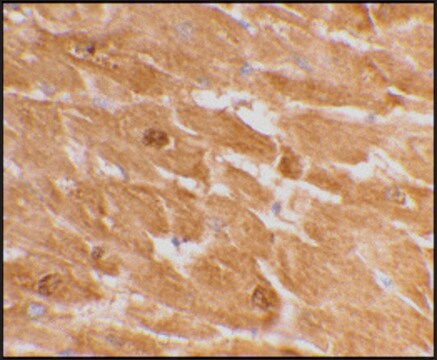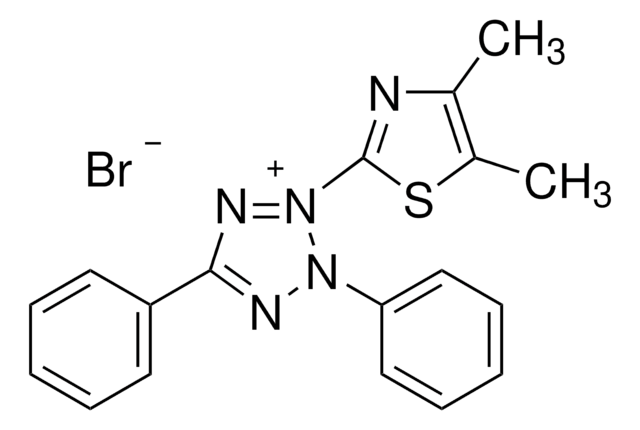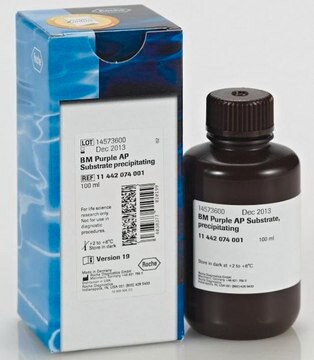C7611
Monoclonal Anti-Caspase 12 antibody produced in rat
clone 14F7, purified immunoglobulin, buffered aqueous solution
Sinonimo/i:
Anti-CASP-12, Anti-CASP12P1
About This Item
ICC
IHC
IP
WB
immunohistochemistry: suitable
immunoprecipitation (IP): suitable
microarray: suitable
western blot: 1-2 μg/mL using whole cell extract of rat kidney cells NRK cells
Prodotti consigliati
Origine biologica
rat
Livello qualitativo
Coniugato
unconjugated
Forma dell’anticorpo
purified immunoglobulin
Tipo di anticorpo
primary antibodies
Clone
14F7, monoclonal
Stato
buffered aqueous solution
PM
antigen ~50 kDa
Reattività contro le specie
rat, mouse
tecniche
immunocytochemistry: suitable
immunohistochemistry: suitable
immunoprecipitation (IP): suitable
microarray: suitable
western blot: 1-2 μg/mL using whole cell extract of rat kidney cells NRK cells
Isotipo
IgG2a
N° accesso UniProt
Condizioni di spedizione
dry ice
Temperatura di conservazione
−20°C
modifica post-traduzionali bersaglio
unmodified
Informazioni sul gene
mouse ... Casp12(12364)
rat ... Casp12(156117)
Descrizione generale
Specificità
Immunogeno
Applicazioni
Azioni biochim/fisiol
Stato fisico
Nota sulla preparazione
Esclusione di responsabilità
Non trovi il prodotto giusto?
Prova il nostro Motore di ricerca dei prodotti.
Codice della classe di stoccaggio
10 - Combustible liquids
Classe di pericolosità dell'acqua (WGK)
WGK 1
Punto d’infiammabilità (°F)
Not applicable
Punto d’infiammabilità (°C)
Not applicable
Scegli una delle versioni più recenti:
Possiedi già questo prodotto?
I documenti relativi ai prodotti acquistati recentemente sono disponibili nell’Archivio dei documenti.
Il team dei nostri ricercatori vanta grande esperienza in tutte le aree della ricerca quali Life Science, scienza dei materiali, sintesi chimica, cromatografia, discipline analitiche, ecc..
Contatta l'Assistenza Tecnica.







